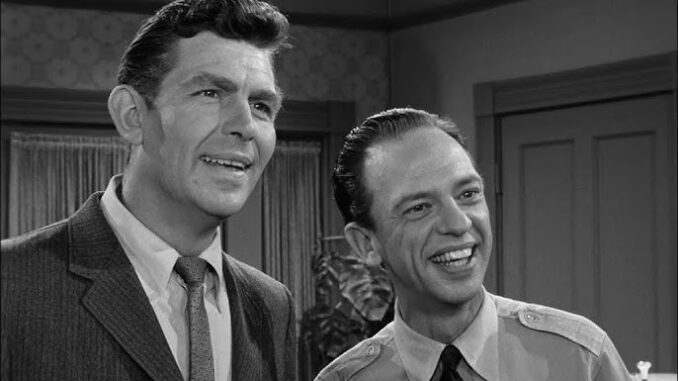
Mayberry Faces Hollywood Chaos and an Unwanted Spotlight
Mayberry, a name synonymous with gentle living, homespun wisdom, and the unwavering spirit of community, was a haven tucked away from the whirlwind of modern life. Sheriff Andy Taylor dispensed justice with a wink and a folksy sermon, Opie learned life lessons fishing, and Aunt Bee’s apple pies were a balm for any troubled soul. In this idyllic pocket of America, life moved at a comfortable, predictable pace, a stark contrast to the frenetic energy and relentless demands of Hollywood. When, by a twist of fate, Mayberry found itself thrust into the glare of the Hollywood spotlight, the clash of cultures was not just jarring; it threatened to unravel the very fabric of the town’s identity.
The catalyst was Barney Fife. Always eager, albeit often misguided, in his pursuit of law enforcement, Barney's antics had somehow caught the attention of a Hollywood producer scouting for "real America" stories. The idea, ludicrous as it sounded to Andy, was to make a movie: “Mayberry: The Musical.” Barney, naturally, was ecstatic, envisioning himself as a Gene Kelly in a deputy's uniform. The promise of fame, however, came at a price.
The first sign of trouble arrived with the advance team. A caravan of sleek black cars choked Main Street, disgorging a swarm of brightly dressed, fast-talking individuals armed with clipboards and headsets. Their vocabulary, laced with terms like "optics," "demographics," and "creative vision," was utterly foreign to the Mayberry vernacular. Suddenly, the meticulously arranged window displays of Floyd's Barber Shop were deemed "not visually appealing," and Aunt Bee's carefully curated flower garden was dismissed as "lacking in cinematic impact."
The townsfolk, initially intrigued by the novelty of movie-making, soon grew weary. The constant demands for retakes disrupted the rhythm of daily life. The quiet hum of conversations on the porch of the general store was replaced by the amplified shouts of the director. The innocent games of children were interrupted by security guards enforcing noise restrictions. The sense of ownership and belonging, so deeply ingrained in Mayberry's ethos, began to erode as outsiders dictated the narrative of their lives.
Barney, blinded by his ambition, became a caricature of himself, adopting Hollywood affectations and attempting to impose his "artistic vision" on everything. He tried to convince Aunt Bee to use commercially produced frosting on her pies for a "more consistent look." He badgered Floyd to update his hairstyles to be "more modern." Andy, ever the voice of reason, tried to temper Barney's enthusiasm, but the allure of fame had proven too potent.
The real damage, however, ran deeper than superficial alterations. The movie's script, penned by a screenwriter who had clearly never set foot outside of Los Angeles, portrayed Mayberry as a quaint, backwards town populated by simpletons. Aunt Bee was depicted as a dithering old woman, Andy as a bumbling sheriff, and Barney as a perpetually incompetent buffoon. The townsfolk, horrified by the distortion of their reality, felt betrayed and exploited.
The final blow came during the premiere. The red carpet was rolled out, attracting a crowd of paparazzi and celebrity gawkers. The movie screened to a bewildered audience who either laughed condescendingly at the "hick humor" or walked out in disgust. "Mayberry: The Musical" was a critical and commercial disaster, a testament to the dangers of imposing an external narrative on a community that valued authenticity above all else.
The aftermath of the Hollywood invasion left Mayberry shaken but not broken. The unwanted spotlight had exposed the town’s vulnerabilities and highlighted the importance of protecting its unique identity. While Barney eventually came to terms with the reality of his Hollywood dream, the experience served as a crucial lesson. Mayberry realized that its true strength lay not in fleeting fame or external validation, but in the genuine bonds of community, the simple joys of life, and the unwavering commitment to upholding its own values. The apple pies still tasted of home, the fishing trips remained a rite of passage, and the gentle hum of Main Street returned, a testament to the enduring spirit of a town that had faced Hollywood chaos and emerged, bruised but ultimately stronger, in the unwanted spotlight. The experience served as a reminder that the greatest treasures are often found not in the glitz and glamour of the world, but in the quiet, unassuming corners of life, where authenticity reigns supreme.